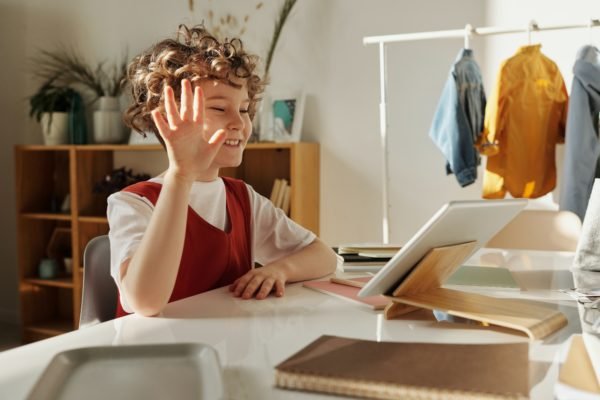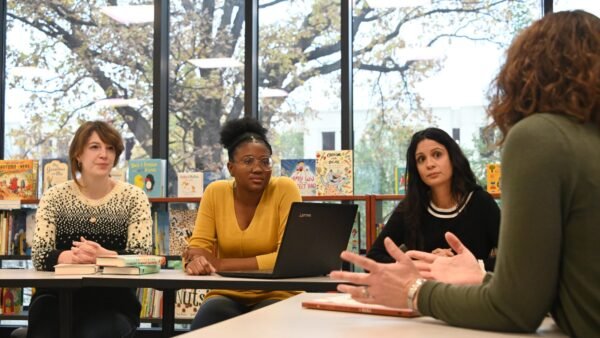
Improving Your Child’s Social Skills During Quarantine

The coronavirus has created an academic mass migration into an online learning environment. This has naturally placed parents in the challenging spot of either reinforcing virtual school lessons at home or taking on the entire educational experience via homeschooling on their own.
In either case, the thought of teaching things like language, maths, or science to your kids may feel intimidating enough, especially when it’s added onto the fact that you already need to keep them entertained at home all day long.
But what about your child’s social skills? With a severe lack of peer interaction taking place, many children are suffering from an inability to learn about how to navigate social settings. With that in mind, here are a few suggestions for ways that parents can help their children hone their social skills, even in a safe, quarantined environment.
Set Up Virtual Playdates
21st-century adults responded to the coronavirus pandemic by going virtual. Everything from work and church to dates and even baby showers has gone online. The same formula can be applied to your child’s social interactions as well.
While connecting through a video camera will never be as effective as an in-person interaction, it can still go a long way in keeping those social skills alive and well.
Additionally, virtual playdates can be ideal settings to help you address any social anxiety that your child may experience from their interactions. Rather than taking the easy way out by removing stressors and avoiding social interactions entirely, you can set up a virtual scenario in which you can remain by your child’s side, helping them through the stresses and strains of interpersonal interactions.
Try Socially Distant Get-Togethers
If you’re living in an area where the COVID-19 infection rate is low, you can also try planning a socially distanced get-together. Make sure to only invite a child or two at a time and always do your homework to stay up-to-date with current hygienic guidelines — both globally and in your particular region.
If you can have your child occasionally interact with a friend in person, it can do wonders in helping them maintain their social skills.
Monitor Interactions with Family Members
Even if you can’t get together with friends very often, you can still work on your child’s social skills right at home. Even if it isn’t in peer-to-peer interactions, you can still apply social lessons with siblings, parents, and even extended family members that share your living space or you naturally see more often.
As you monitor your child’s interactions with their loved ones, make sure to call them out on social behaviours that, though unacceptable in public, are often overlooked in the comfort of your own home. Basic social behaviours, like saying please and thank you, being polite, and sharing, are especially important and should be upheld even in quarantine.
Teach Social Skills in Isolation
Even if your child can’t actively interact with their peers at the moment, it doesn’t mean you can’t work on their social skills one-on-one. For instance, you can help them learn about:
- Active listening: Helping your child practice active listening can foster the give and take of conversation that is naturally missing in isolation.
- Speaking up and not mumbling: Gently encourage your child to enunciate and communicate clearly, even if they’re just talking to you.
- Looking people in the eyes: Instruct your child to maintain eye contact and face individuals as a sign of respect and engagement while they’re speaking to them.
- Empathy: Help your child regularly practice paying attention to other people in your household. This can combat the naturally myopic perspective that often takes hold in social isolation.
- Choosing the right words: Filtering unnecessary or hurtful information in social settings is important. Whether your child is talking to you, interacting with a sibling, or writing a letter to a friend, help them learn to choose their words wisely.
By honing their emotional intelligence, you’re helping to equip your child with the necessary tools to navigate social events when the pandemic ends. Not only that, but many of these skills have the power to directly influence their future professional careers as well, as character traits like active listening and interpersonal communication are highly sought after in the modern workplace.
Maintaining and Developing Social Skills in Isolation
There’s no doubt that the current pandemic and the quarantines that it has created have presented numerous challenges. High on the list is the concern of the long-term impact that months and years of limited socialization can have on a child’s development.
Fortunately, as a parent, your hands aren’t tied when it comes to your child’s social well-being. Whether it’s through controlled playdates, interactions with family members, or one-on-one instruction, there are many ways that you can help to foster and cultivate your child’s social abilities. When done thoughtfully, the effort will serve them far into the future.













































